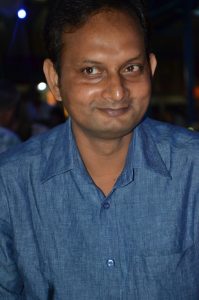
 A Fiji National University (FNU) academic has published a book on medical health and history to trace the social, cultural and linguistic aspects of medicine that spurred the development of Ayurvedic and Unani medicine in India.
A Fiji National University (FNU) academic has published a book on medical health and history to trace the social, cultural and linguistic aspects of medicine that spurred the development of Ayurvedic and Unani medicine in India.
The book, titled Health, Medicine and the Encounter of Cultures in India, was written by FNU’s College of Humanities and Education (CHE) Associate Dean Learning and Teaching and Assistance Professor of History, Professor Mumtaz Alam.
“As an undergraduate, I realized that history was the most inclusive of all fields. But history had already been part of my consciousness when I opted for history of science and technology and was lucky to start graduate studies in 1995 when medical history was coming into focus.,” Prof Alam said.
“I was especially fortunate that my mentors, Emeritus Professor Irfan Habib and Professor Nadeem Ali Rezavi, were open to new ways to gain historical insight.”
“All of these positive influences allowed me to develop my understanding and grow as a historian. Over time, I also became part of an interdisciplinary group at FNU with colleagues in sociology, public health, education and psychology who came together regularly to discuss issues and ideas.”
“When I completed my doctorate, it was appreciated by all the examiners, so this inspired me to write my book.”
Prof Alam said he had to balance his roles as a full-time academic staff and caring for his family in order to complete the publication.
“One of the many challenges I faced while researching and writing my book was the illness of one of my children. To get my book written, however, I had to motivate myself to rise extremely early or stay up very late.
“Whilst it’s important to take care of one’s loved ones and keep one’s nose to the grindstone, it’s just as important to carve out some time for fun and relaxation.”
“When the book was finally published, I felt a surge of excitement as well as motivation. I was very delighted, grateful, enthusiastic, and encouraged to such a great extent that words cannot explain the sensation of joy,” he explained.
“Knowing that the work I do can, albeit in a limited capacity, contribute to the community is extremely invigorating.”
Prof Alam explain that the book explores how the two systems (Ayurvedic and Unani medicine) influenced each other and led to the emergence of a rich, indigenous medicinal system.
“It traces the medical literature in India from the eleventh/twelfth centuries onwards till the nineteenth century and delves into the Sanskrit, Arabic and Persian books of medicine that were written, used, or procured by Indian physicians,” he said.
“The book focuses not only on the evolution of the medical systems in the subcontinent but also tries to assess the position that physicians enjoyed in society and the status their profession was accorded from the seventeenth century onwards.”
“The book then moves on to analyse the arrival of Europeans and the introduction of their medicinal system in India.”
Prof Alam encouraged aspiring and established writers to engage with reputable publishers in order to gain credibility and a global reputation.
“A single book published by a reputable publisher is preferable to many books published by a publisher with little or no clout. Finally, after all these sacrifices, your perseverance will be rewarded,” he said.
CHE Professor in Interdisciplinary Studies and Research, Professor Nii-K Plange added that Prof Alam’s publication “displays a masterful analysis of health and medical practice in colonial India as a force field of contested knowledge from which contemporary medicine in India has to be understood.”
“Students of history and public health disciplines will benefit tremendously from both the content and the art of historical and archival research,” Prof Plange stated.